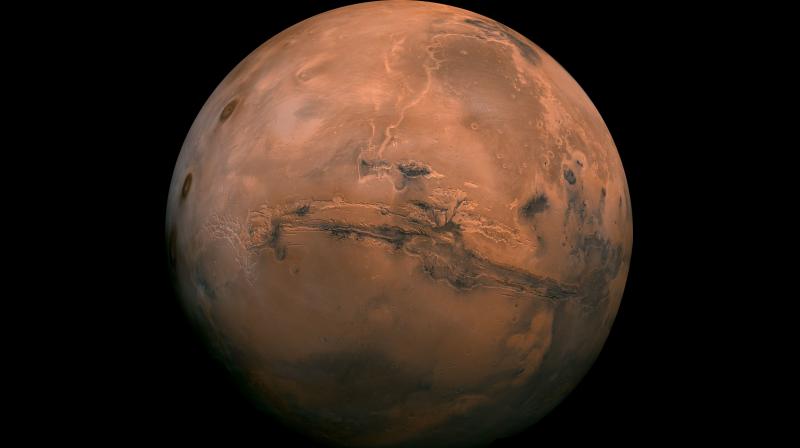Back on Earth, China\'s Mars simulation base greets first visitors

About 100 excited Chinese teenagers completed a five-hour tour of a space colony against a desolate backdrop not unlike the desert planet of Tatooine, the homeworld of Luke Skywalker.
They were not on the set of Star Wars, but at a Chinese-built Mars simulation base in the barren, windswept hills of Gansu province.
The facility - comprising several interconnected modules including a greenhouse and a mock decompression chamber - opened its doors to the public on Wednesday.
Mars Base 1 Camp, covering an area about one-fifth of an American football field, is the brainchild of a media company and officials in Gansu, a poor province in northwest China.
Officials hope the camp, about 40 km (25 miles) from the township of Jinchang, will boost tourism and allow visitors to feel as though they are on the red planet.
A plan to invest 2.5 billion yuan (USD 374 million) will expand the site to 67 sq km (26 square miles) and attract 2 million visitors a year by 2030.
“I am very excited to be here,” said a 13-year-old student from Jinchang. “We saw the monolith, a crater and a cave. It’s better than the Mars that I had imagined.”
In the 1968 science fiction film “2001: A Space Odyssey”, a mysterious black monolith appears before a tribe of man-apes in the African savannah in one of the most memorable scenes in Western movie history.
China’s space program has fired up imaginations and public appetite for science and science fiction.
In January, a Chinese space probe touched down on the far side of the moon for the first time, a feat viewed with pride among ordinary Chinese people.
China is developing powerful rockets to help realise a more ambitious dream of sending a probe to Mars in 2020. After that, scientists hope to explore asteroids and even land on one.
“A nation needs people who look up at the stars,” said Bai Fan, CEO of Jinchang Star Universe Culture & Tourism Investment Co, the media company that co-developed the base.
“We hope the bases will let them feel the spirit of space exploration, and not just experience the technology behind it.”
Apart from being a tourist attraction, the camp has collaborated with the Astronauts Center of China (ACC) to eventually turn the facility into an astronaut-training centre.
The camp is not the only Mars-themed site in China. On the neighbouring Qinghai-Tibet plateau, China unveiled its first Mars “village” in March.

